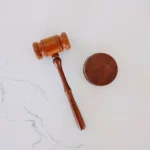In 2021, solar-generated energy only accounted for 3% of all electricity in the US. This is quite small in comparison to the energy generated from coal and natural gas.
If you are interested in a solar shed, there are certain things you need to know. Solar panel sheds might not be the best option for everyone.
Your budget, shed size, and electricity bill all play a factor in whether or not you should install solar panels. The type of appliances you power within your shed also plays a contributing role.
Luckily, this helpful guide explains what you need to know about solar sheds so you can make the most informed decision. Keep reading for more useful information.
What Is a Solar Shed?
You have probably heard of people adding solar panels to their homes but not to a shed. These solar panels allow homeowners to harness the sun’s (free) energy to power their homes.
A solar shed is an outdoor structure that has a solar system installed on the roof. This works just like solar panels do for a home.
The solar system collects energy through the panels and stores that energy in batteries. That electricity is then used to supply power to the shed.
This helps to power things like lights, outlets, and equipment that is plugged in.
Things to Consider About a Solar Shed
Solar generation has a lot of things to offer when it comes to electricity. But solar power is not ideal for every shed or property owner.
Here are some of the main things you need to first consider before making this investment.
The Shed Roof
Something homeowners need to consider is the installation process, as solar systems require solar panels to be installed on a shed roof instead of in a solar field.
Because of this, you need to look at your shed to figure out if this is a realistic option. The first thing to consider is the weight of the solar panels.
Sheds are not always the sturdiest buildings and may not be ideal for this amount of weight. It will depend on the material of the roof and how it was built.
It is a good idea to have an inspection done by an engineer to figure this out. They will be able to tell you if the shed roof is structurally sound enough to hold this weight.
You also need to consider the size of the shed roof. The majority of sheds are quite small, usually measuring around the size of a small room.
The average residential solar panel is about 15 square feet. If your shed roof is too small, you won’t be able to fit many panels on it.
This is why solar sheds tend to be larger sheds as they are more solar panel suitable.
Roof Direction
You also have to consider how much sunlight is touching the roof. After all, solar panels can generate electricity through sunlight.
If your shed roof is not getting enough sunlight, it won’t be able to produce much electricity.
Southern-facing roofs are ideal when it comes to solar panel installation. But any roof that has enough sunlight is still going to be able to work.
If your shed is under an awning or trees that provide shade, this could cause problems. This is why you should inspect your roof several times on different days to see how much sunlight there is.
Desired Electricity
When it comes to residential homes, most people want to completely replace their electricity. If you are wanting a solar shed, you need to decide on this detail.
How much electricity do you need to go to your shed? Do you want to completely cover your shed’s power usage, or are you okay with partial coverage?
These are things that you need to ask yourself before making this investment. How much sunlight the shed gets and how many panels you can use will impact this.
For some sheds, you may not be able to generate enough electricity. This could ultimately make this investment not worth it in that specific instance.
This is important to consider since it is going to impact your budget. If you can save on your power bill, it may not make the initial investment worthwhile.
Kit or Professional Installation
Another thing you need to consider is how the panels will be installed. The obvious option is to hire professionals to do this job for you.
But that isn’t the only option you have, as there are options when it comes to a solar kit. A solar kit can provide you with everything you need to turn this into a DIY project.
This is going to take more time and effort, but it is often more affordable. This is especially true if you are only installing a few panels on your shed roof.
You will need to weigh the pros and cons when it comes to this decision. After all, the professionals will also have additional experience that you don’t have during this process.
Benefits of a Solar Shed
If you still can’t decide, there are other things to consider. Specifically, what you will get out of a solar shed.
Here are some examples of the main benefits you get when you have a solar shed.
Independent Energy
The main benefit of a solar shed is its independence. If there are power outages, you will also be able to use electricity for your shed anyway.
If you are using your shed as a workshop or man cave, this is especially useful. For average storage sheds, this may not be as beneficial an investment.
Environmentally Friendly
Another thing to consider is that a solar shed is more environmentally friendly. It can help reduce greenhouse gas emissions, impacting climate change.
Solar panels provide a renewable source of power instead of traditional power sources. Another benefit is that solar panels are very easy to care for once installed.
You can check out this resource to find out how to clean solar panels easily.
Downsides to a Solar Shed
Having a solar shed is a great option for a variety of property owners. But there are instances where the downsides may outweigh the benefits depending on your situation.
That is why you need to do your research and evaluate the shed you already have.
Expensive Investment
The main expense for a solar shed is the solar system and installation. For some homeowners, this may not be something that is worth the cost.
You may not have the resources to fund this project, especially for a shed. The savings you will get may also not be enough to cover the cost of installation.
Those with small power bills often run into this problem. If your power is not very expensive, the return on your investment will not be as significant.
Not Suitable for All Sheds
Sheds are relatively small structures that aren’t always extremely sturdy. The majority of sheds are not going to be suitable for solar panels.
For example, small sheds, like some storage or garden sheds, are probably going to be too small. You also have to ensure they are well-made and correctly positioned to be worth the effort.
Maintaining a Solar Shed
It is important that you maintain this system once it is installed. If not maintained, solar panels could become damaged or not have as long of a lifespan.
Part of this includes monitoring your system to see how efficient it is.
This will help you to track your investment and ensure that it is paying off. You may need to clean the solar panels between two and four times a year.
This depends on the weather you experience and where the shed is located. You may need to remove things like dead leaves and snow on a seasonal basis.
If you ever notice anything out of the ordinary, you may need to call a professional. This includes any visible damage to the panels or if they have shifted out of place.
Solar Shed: Is It Right for You?
If you own a shed, you may be considering the benefits of a solar shed. This is an option that is becoming very popular when it comes to renewable energy.
A solar shed allows you to install a solar system on the roof to generate electricity. You will have the option of using a kit or professional installers.
Did you enjoy reading this article about solar energy? Keep reading for more helpful content.
Read Also: The Top 5 Benefits Of Using A Tree Stump Removal Machine







